Hotel Jäger von Fall, Lenggries, Bavaria, Germany
Organizers: Harald Oberhofer, Johannes Margraf
Webpage: http://macsims.ch.tum.de
Multi-scale simulation approaches rely on a hierarchy of increasingly accurate and highly resolved methods to capture the different time- and length-scales relevant to a process of
interest. Traditionally, this might involve coupling classical molecular dynamics with electronic structure calculations (QM/MM), or embedding a quantum mechanical system in a point charge
or continuum environment. In this context, the models comprising the individual layers of the multi-scale hierarchy are often unrelated. For instance, the empirical potential and DFT method in a QM/MM simulation are independently defined at the beginning of the simulation. Enormous advances in electronic structure algorithms and hardware now allow first principles calculations to be carried out on a truly massive scale. This leads to a novel perspective of multi-scale models: electronic structure data can be generated with high enough quality and quantity to allow the application of coarse graining and machine learning techniques. Instead of defining
separate physical models at different scales, the electronic structure method directly informs the next layer of the multi-scale hierarchy. The goal of this workshop was to bridge the gap between
traditional, layered multi-scale techniques and the more direct coarse graining and machine learning approaches to the simulation of extended systems, thereby bringing together researchers working on QM/MM or other embedding techniques with those who apply coarse graining and interpolation to electronic structure data in different contexts (e.g. potential energy surfaces, electronic properties, charge transport, rate constants in catalysis) and with different methods (neural networks, Gaussian process regression, kernel ridge regression, splining, etc).

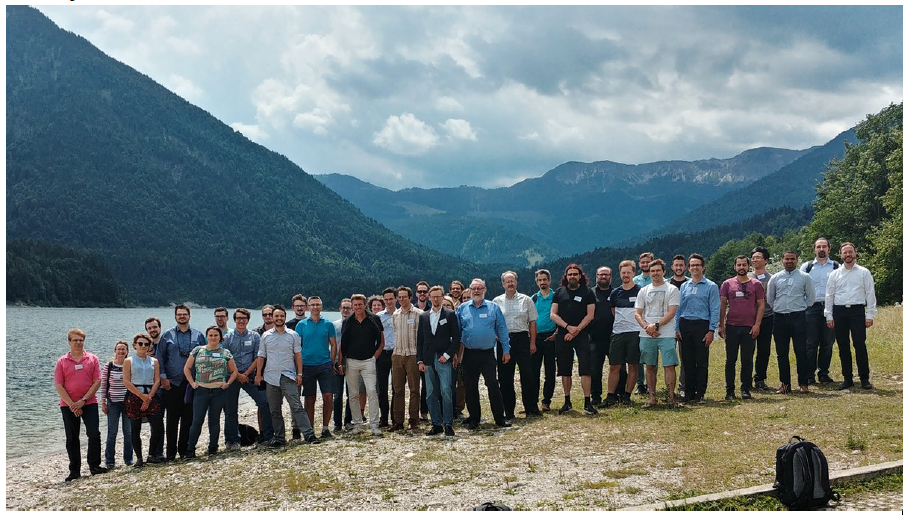
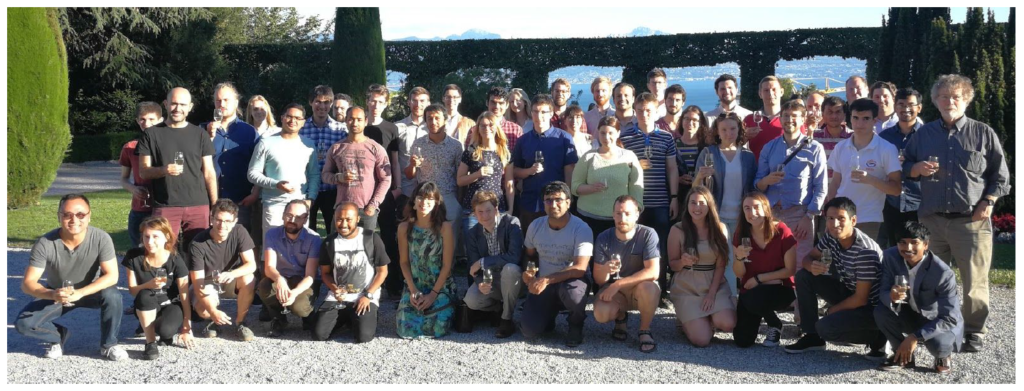

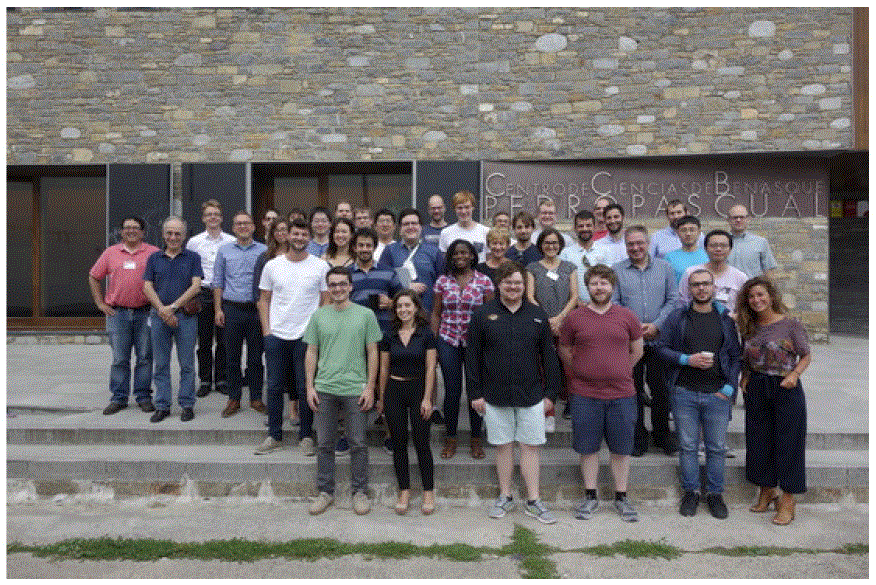


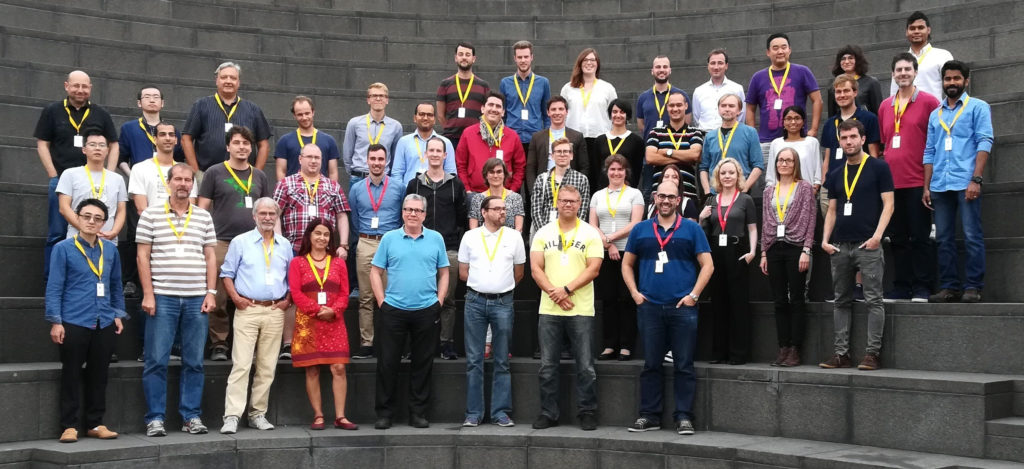
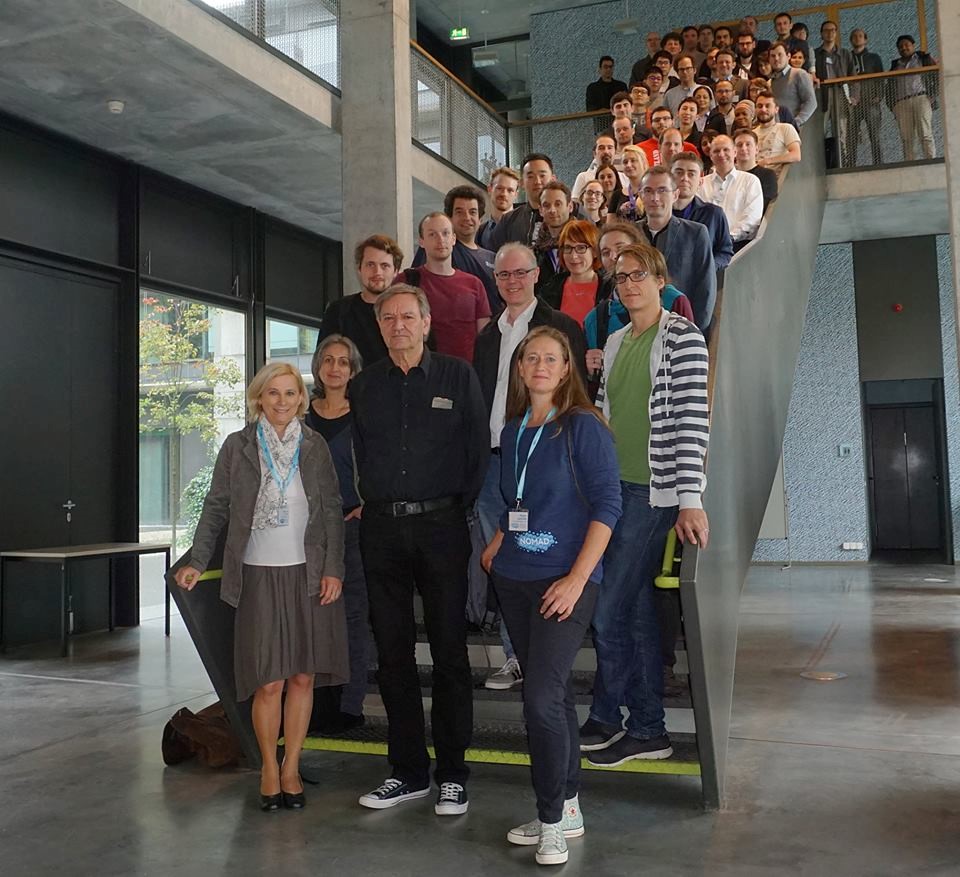 This workshop did not only demonstrate NOMAD’s achievements, but also taught the usage of the wide range of NOMAD tools, in order to take advantage of these developments and the large amount of data gathered by this project. The eight sessions were organized by topics, covering
This workshop did not only demonstrate NOMAD’s achievements, but also taught the usage of the wide range of NOMAD tools, in order to take advantage of these developments and the large amount of data gathered by this project. The eight sessions were organized by topics, covering